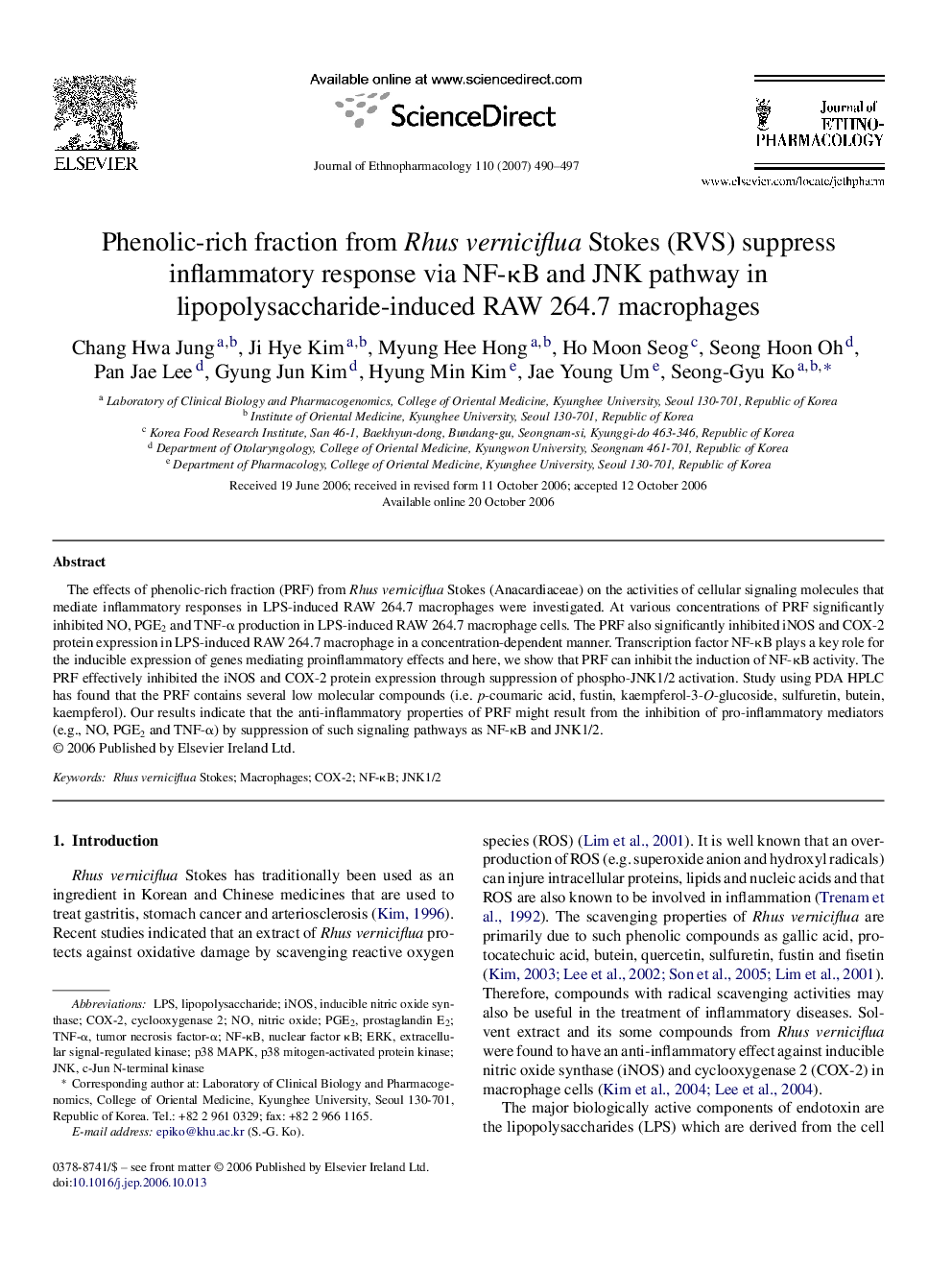| Article ID | Journal | Published Year | Pages | File Type |
|---|---|---|---|---|
| 2547335 | Journal of Ethnopharmacology | 2007 | 8 Pages |
The effects of phenolic-rich fraction (PRF) from Rhus verniciflua Stokes (Anacardiaceae) on the activities of cellular signaling molecules that mediate inflammatory responses in LPS-induced RAW 264.7 macrophages were investigated. At various concentrations of PRF significantly inhibited NO, PGE2 and TNF-α production in LPS-induced RAW 264.7 macrophage cells. The PRF also significantly inhibited iNOS and COX-2 protein expression in LPS-induced RAW 264.7 macrophage in a concentration-dependent manner. Transcription factor NF-κB plays a key role for the inducible expression of genes mediating proinflammatory effects and here, we show that PRF can inhibit the induction of NF-κB activity. The PRF effectively inhibited the iNOS and COX-2 protein expression through suppression of phospho-JNK1/2 activation. Study using PDA HPLC has found that the PRF contains several low molecular compounds (i.e. p-coumaric acid, fustin, kaempferol-3-O-glucoside, sulfuretin, butein, kaempferol). Our results indicate that the anti-inflammatory properties of PRF might result from the inhibition of pro-inflammatory mediators (e.g., NO, PGE2 and TNF-α) by suppression of such signaling pathways as NF-κB and JNK1/2.
